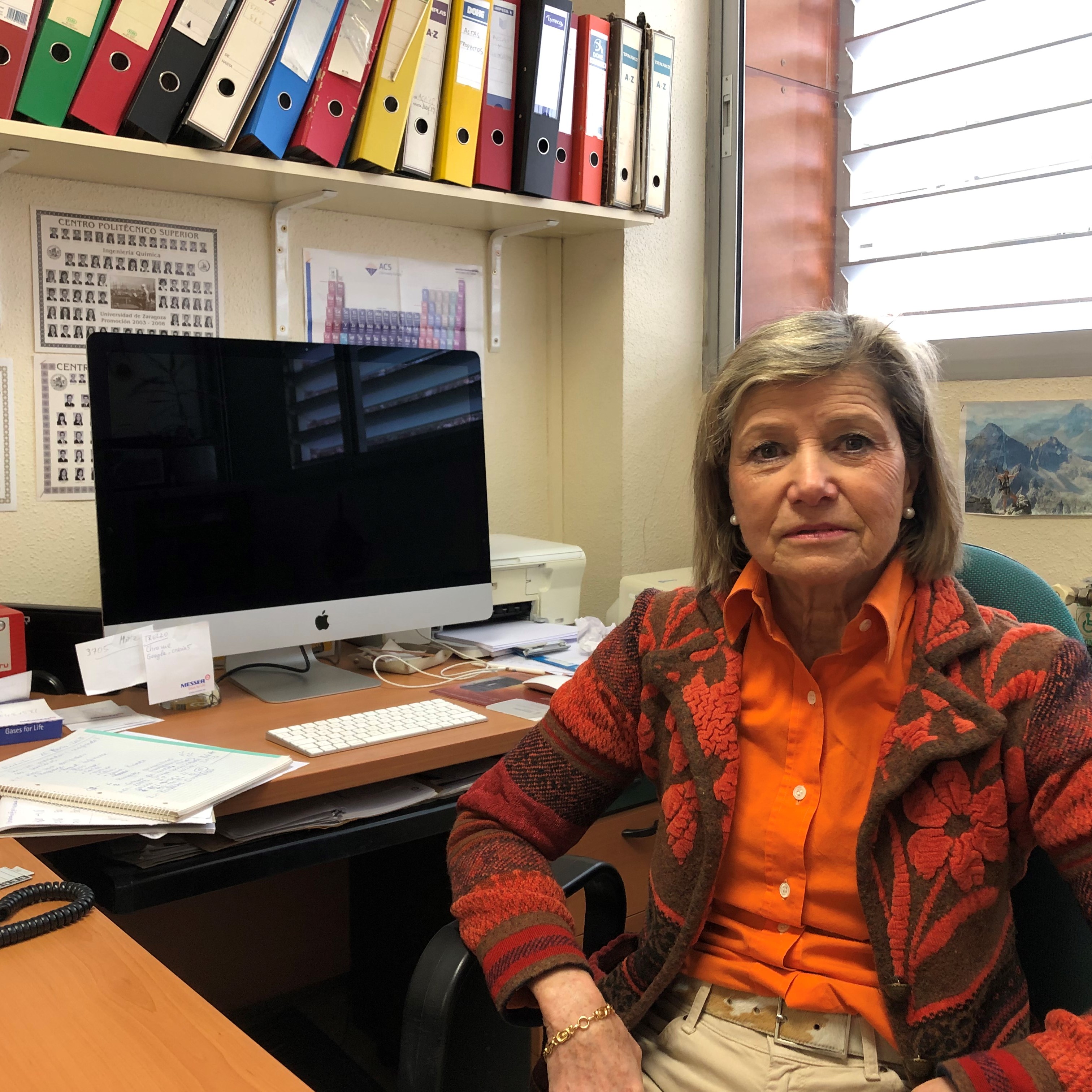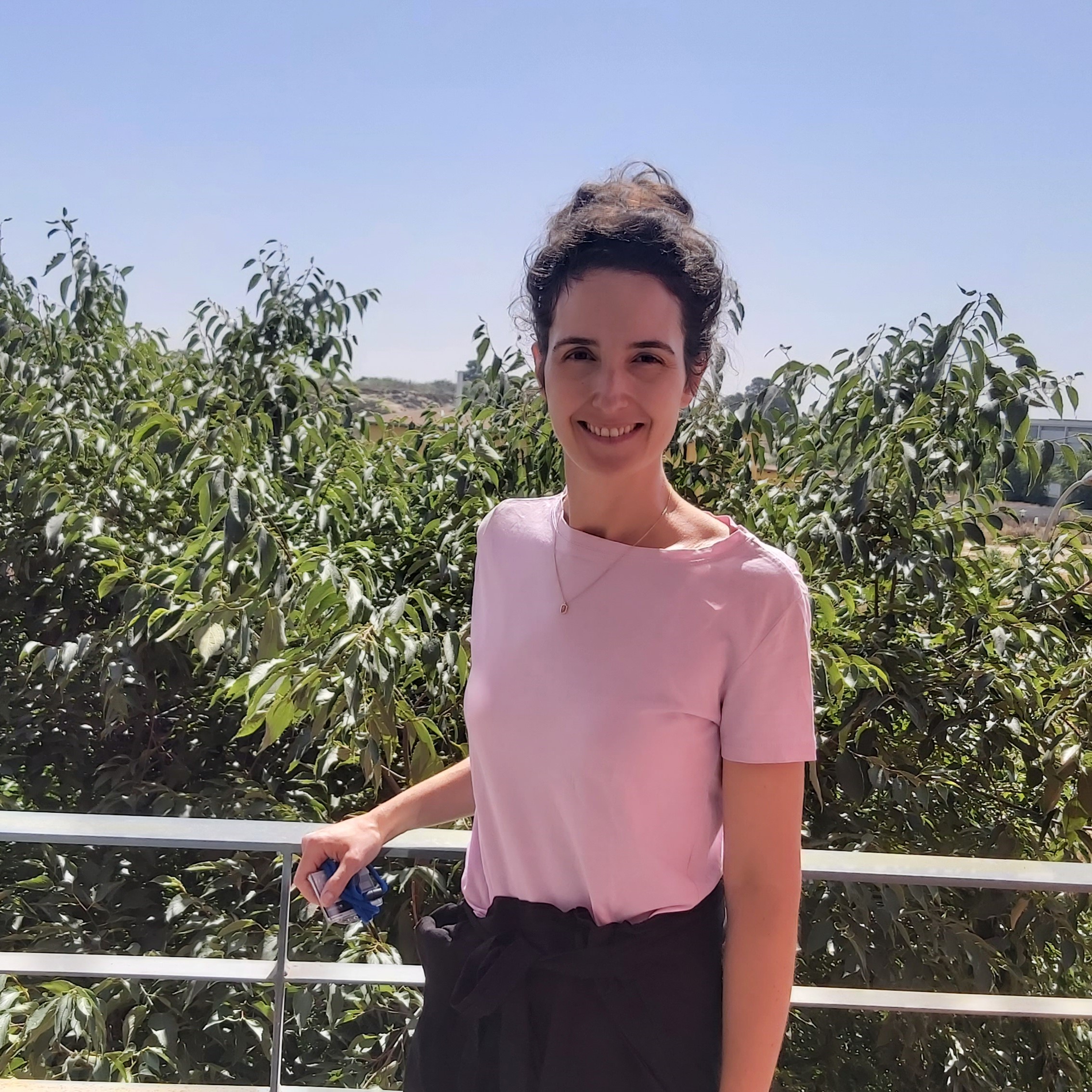
Why did you decide to go into research?
I am very curious and you discover a lot of things through research. When I finished my degree I wanted to work at the university, I wanted to stay here and when I finished my doctoral thesis I followed the path of a research career.
You are part of the GUIA group, what are your main lines of research?
We deal with the safety of materials that are mainly used for food contact. At the end, all materials give up something when they are in contact with any product and this is very important in the food field because through food we ingest chemicals that are not good for our diet.
You could give me an example.
Plastics are the most commonly used materials for food contact, but they are also the most susceptible. In order for a plastic to have the functionality, like last over time or being stable or durable, it needs additives, small molecules that are transferred and dissolved in the product they contain. So, we work on the food safety of materials when they come into contact with food.
As you say, it is very important to control the harmful things that materials give up when they come into contact with food, but how do you do that?
We expose the materials to food simulants for a certain time and temperature to simulate actual use. After exposure, we analyse in depth what they have given up, identifying and quantifying all the compounds.
In addition to studying the safety of the materials, we develop new ones, adding non-toxic substances or food additives that promote or extend the shelf life of the packaged product and are able to protect the packaged food from deterioration, either by inhibiting oxidation processes or microbial growth. In addition, they help to keep it in good quality conditions as freshly made or even, in the case of fruit, as freshly picked.
Any projects in progress...
We currently have three nationally competitive projects. One of them includes, among other activities, the study and optimisation of technologies for recycling polyolefins for use in contact with food. And another project focuses on the development of an ethylene absorber for fruit packaging. Ethylene is the plant hormone released by fruit that causes ripening. We can monitor the amount of ethylene produced by fruit and vegetables in their metabolic process in order to keep them in good condition for longer. We can also monitor the concentration of ethylene in a package to ensure food safety.
The I3A has given us a very interesting multidisciplinary forum
How long have you been in the Institute?
I have been a founding partner in the creation.
What would you highlight about the I3A?
It has given us a very interesting multidisciplinary forum. It has allowed us to get out of the rigid structure of the university where it was very complicated to collaborate with other departments. So, when the I3A was formed and thanks to this multidisciplinarity, this organisation in research groups allows us to collaborate with each other to research and organise interesting things where people from different departments and groups participate.
The commitment to innovation and creativity is always very interesting
What do you like most about your work?
In research there is no routine, you discover new things every day and that is very nice. It's also very creative.
And what is the least?
The constant fight with the university to work, to develop things, to hire people, to manage projects... That consumes a lot of time and energy. Also, they have put in place a lot of absurd rules that lower the level.
Finally, what would you say to someone who is thinking of going into research?
Well, I would encourage them because of the creativity I was telling you about. For that ability to look ahead, to go beyond, and to escape from routine. This commitment to innovation and creativity is always very interesting.
CLOSE...
Of what are you teacher?: Analytical Chemistry.
What do you study?: Chemistry at UNIZAR.
Favourite author: Carlos Ruiz Zafón.
What do you do in your free time?: I like nature, the mountains, it is always a challenge to reach the top, the summit.
Hobbies: Skiing, mountaineering, swimming.
Travel: Costa Rica, China, Brazil.
Favourite place: The mountains.
How would you define yourself: As a person very active, hard-working and open-minded.
